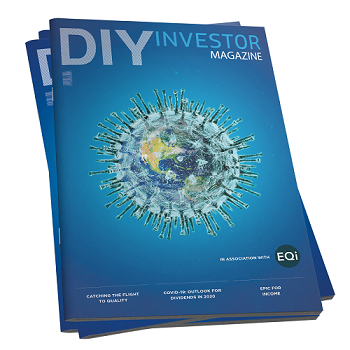Catching up with reality in emerging markets



Andrew Lister
Senior Investment Manager
- Emerging market performance has lagged developed markets over the past few years, but there are early signs of a shift.
- Emerging markets have seen a short-term rally, but many investors are waiting for the ‘right time’.
- The weaker US dollar is the biggest single positive factor for emerging markets.
The prospects for emerging markets relative to their developed counterparts appear to be improving, but this has not been fully reflected in performance in the last year. The US dollar has weakened, which provides a favourable tailwind, while the most important Asian economies – notably China – have emerged from the pandemic with limited economic damage. At a time when growth is likely to be hard to come by in developed markets, the stronger growth rates in emerging markets should be compelling for investors.
To date, however, investors have yet to catch up. Only over the last few months have emerging market indices started to reflect the more positive backdrop. At the Aberdeen Emerging Markets Investment Company, we believe we are only in the foothills of a recovery for the asset class.
As we see it, a lot of investors are still approaching emerging markets with the view that they will buy in the future. However, good entry points are seldom clear. Investors who have waited have already missed out on some of the rally. The right time to move back in is seldom when everything looks rosy.
The weaker US dollar is the biggest single positive factor for emerging markets at present. Emerging market investors have been waiting for many years for signs of weakness, but momentum for the dollar has only grown stronger.
This has seen an abrupt reversal over the spring and early summer as concerns over the spread of Covid-19 and political instability have come to the fore. The importance of a weaker dollar for emerging markets may have been overshadowed by the pandemic, but as headlines shift, we believe investors may start to pay closer attention. Diversifying currency exposure at present, given the fiscal response to the crisis in developed markets, makes intuitive sense.
Another reason investors may not be embracing the opportunity is that some emerging markets are still conspicuously failing to manage the pandemic. Countries such as India, Brazil or South Africa have struggled to contain the virus and are suffering humanitarian and economic consequences as a result.
However, this needs to be set against countries such as Taiwan, South Korea and China, which are far more advanced in returning to pre-Covid levels of social mobility and economic performance.
This has been reflected in the superior performance of stock markets in these countries year to date, but this has also been driven by a skew towards technology companies on local exchanges. Even where investors have returned to emerging markets, they have tended to back the beneficiaries of the pandemic.
In valuation terms, emerging markets aren’t at the cheapest levels we’ve seen, but they remain notably cheaper than their developed market equivalents. Earnings are down, but not catastrophically, with stimulus packages and lower interest rates providing support.
Some areas, such as frontier markets, look extremely good value having been hit by liquidity concerns. We retain a meaningful weighting to select frontier market assets within the portfolio. This includes exposure to frontier market bonds and African equities.
We also see a broader, macroeconomic consideration for emerging markets. There seems little doubt that developed market economies will emerge from this crisis with significantly greater debt burdens.
This is likely to restrain economic growth. In general, emerging market sovereign balance sheets are in better shape. They have less debt and more scope to stimulate if required. This is particularly the case in Asia, where we have been increasing the Company’s exposure.
The final element deterring investors may be the US election. There has been a lot of anti-China rhetoric, even if this has not been matched with real action. This is a risk that needs to be monitored regardless of who wins November’s presidential election in the US. That said, China is in a strong position.
Its debt profile couldn’t be more strongly contrasted with that of the US and we believe high debt in the US may eventually start to compromise its economy. We hold a China bond fund in the portfolio: not only does this provide an attractive yield, but we believe investors should have exposure to the Chinese currency alongside the euro and dollar to reflect a shifting global power balance.
A final note on income. Income stocks have been particularly hard hit by the pandemic, with widespread dividend cuts around the globe. In aggregate, emerging market dividends have held up relatively well, which is likely to be recognised by investors seeking yield in what looks set to be a low interest rate environment for many years to come. We have several holdings in the portfolio that stand to benefit should that occur.
As we see it, investors haven’t yet caught up with reality on emerging markets. However, as the influence of the pandemic ebbs and they look at how the world has changed, they may soon seek to capture the asset class’s longer-term appeal.
Important information
Risk factors you should consider prior to investing:
- The value of investments and the income from them can fall and investors may get back less than the amount invested.
- Past performance is not a guide to future results.
- Investment in the Company may not be appropriate for investors who plan to withdraw their money within 5 years.
- The Company may borrow to finance further investment (gearing). The use of gearing is likely to lead to volatility in the Net Asset Value (NAV) meaning that any movement in the value of the company’s assets will result in a magnified movement in the NAV.
- The Company may accumulate investment positions which represent more than normal trading volumes which may make it difficult to realise investments and may lead to volatility in the market price of the Company’s shares.
- The Company may charge expenses to capital which may erode the capital value of the investment.
- Derivatives may be used, subject to restrictions set out for the Company, in order to manage risk and generate income. The market in derivatives can be volatile and there is a higher than average risk of loss.
- Movements in exchange rates will impact on both the level of income received and the capital value of your investment.
- There is no guarantee that the market price of the Company’s shares will fully reflect their underlying Net Asset Value.
- As with all stock exchange investments the value of the Company’s shares purchased will immediately fall by the difference between the buying and selling prices, the bid-offer spread. If trading volumes fall, the bid-offer spread can widen.
- The Company invests in emerging markets which tend to be more volatile than mature markets and the value of your investment could move sharply up or down.
- Certain trusts may seek to invest in higher yielding securities such as bonds, which are subject to credit risk, market price risk and interest rate risk. Unlike income from a single bond, the level of income from an investment trust is not fixed and may fluctuate.
- With funds investing in bonds there is a risk that interest rate fluctuations could affect the capital value of investments. Where long term interest rates rise, the capital value of shares is likely to fall, and vice versa. In addition to the interest rate risk, bond investments are also exposed to credit risk reflecting the ability of the borrower (i.e. bond issuer) to meet its obligations (i.e. pay the interest on a bond and return the capital on the redemption date). The risk of this happening is usually higher with bonds classified as ‘subinvestment grade’. These may produce a higher level of income but at a higher risk than investments in ‘investment grade’ bonds. In turn, this may have an adverse impact on funds that invest in such bonds.
- Yields are estimated figures and may fluctuate, there are no guarantees that future dividends will match or exceed historic dividends and certain investors may be subject to further tax on dividends.
Other important information:
Issued by Aberdeen Asset Managers Limited which is authorised and regulated by the Financial Conduct Authority in the United Kingdom. Registered Office: 10 Queen’s Terrace, Aberdeen AB10 1XL. Registered in Scotland No. 108419. An investment trust should be considered only as part of a balanced portfolio. Under no circumstances should this information be considered as an offer or solicitation to deal in investments.
Find out more at www.aberdeenemergingmarkets.co.uk and register for updates here.
Follow us on social media here: Twitter and LinkedIn.
To buy this trust login to your EQi account
Select Aberdeen Emerging Markets Investment Company - GG00B45L2K95

Read the latest edition of DIY Investor Magazine
DIY Investor Magazine
The views and opinions expressed by the author, DIY Investor Magazine or associated third parties may not necessarily represent views expressed or reflected by EQi.
The content in DIY Investor Magazine is non-partisan and we receive no commissions or incentives from anything featured in the magazine.
The value of investments can fall as well as rise and any income from them is not guaranteed and you may get back less than you invested. Past performance is not a guide to future performance.
DIY Investor Magazine delivers education and information, it does not offer advice. Copyright© DIY Investor (2016) Ltd, Registered in England and Wales. No. 9978366 Registered office: Mill Barn, Mill Lane, Chiddingstone, Kent TN8 7AA.
